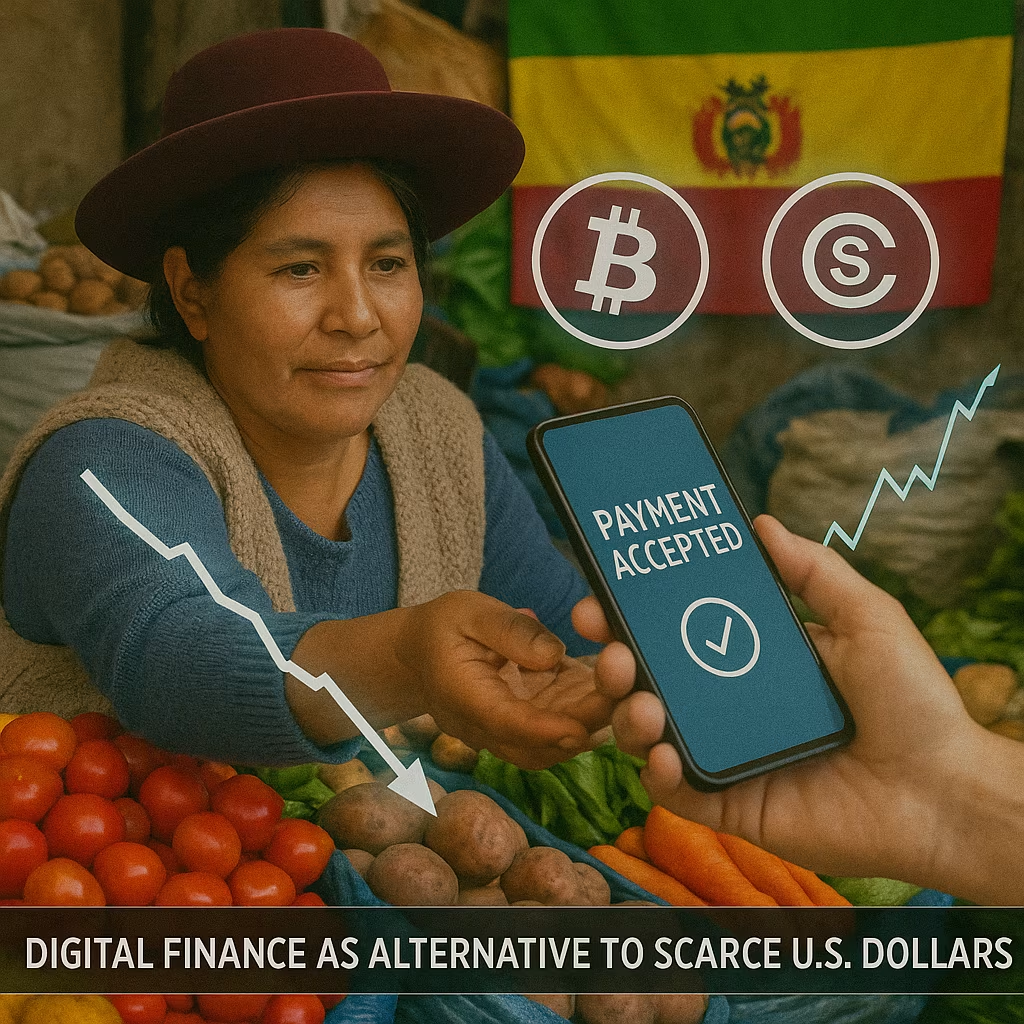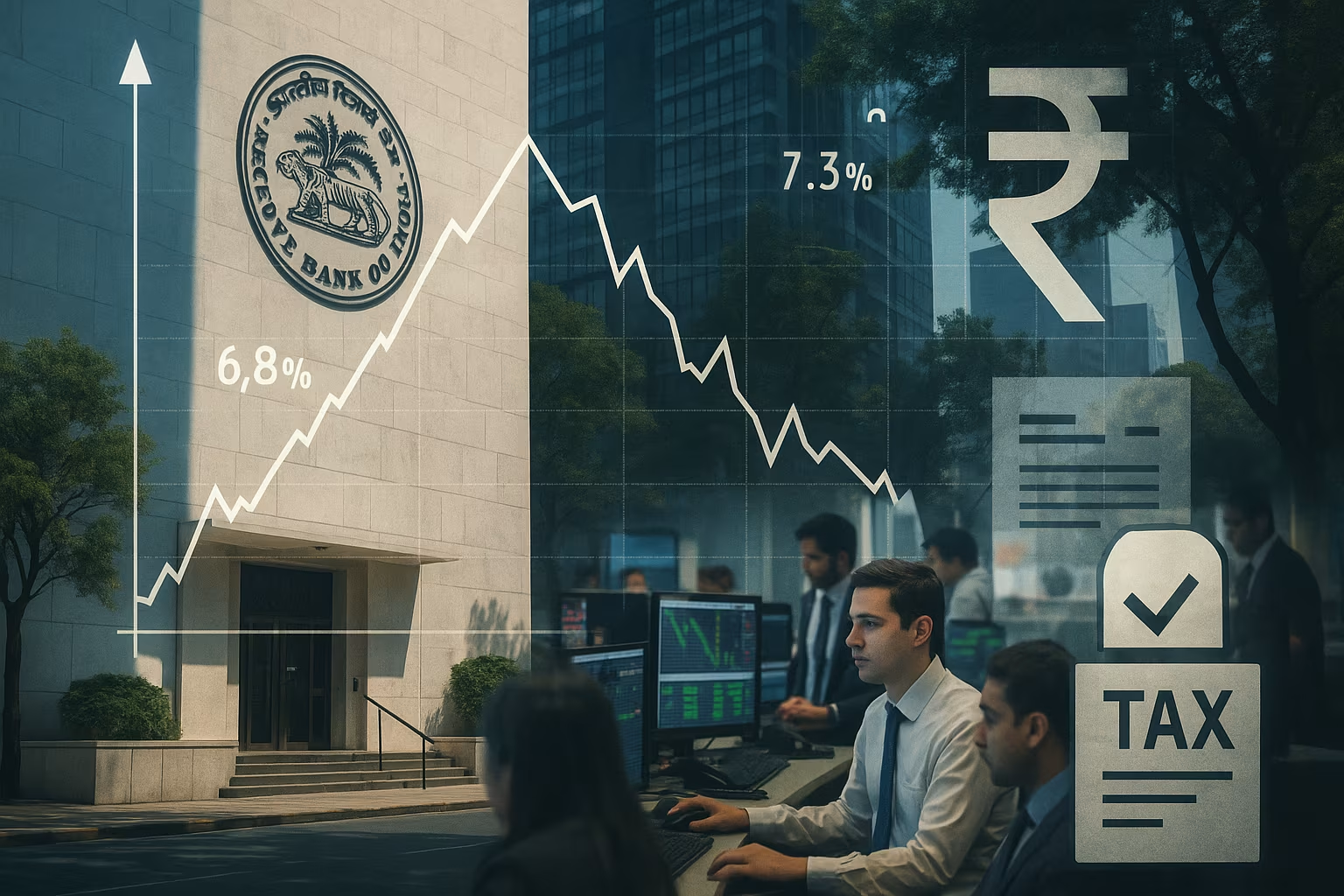In recent months, Bolivia has faced a growing shortage of U.S. dollars, making it increasingly difficult for individuals and businesses to access foreign currency for savings, imports, and everyday transactions. Amid this scarcity, cryptocurrencies have emerged as an alternative financial lifeline, offering a way for Bolivians to bypass traditional banking restrictions and safeguard their purchasing power.
The Dollar Shortage Crisis
Bolivia’s dependence on the U.S. dollar for trade and financial stability has left it vulnerable to supply disruptions. Economic pressures, reduced foreign reserves, and a tightening global credit environment have made dollars harder to obtain through official channels.
This scarcity has impacted small businesses that rely on imports, students paying tuition abroad, and everyday citizens seeking to protect their savings from currency devaluation. The informal market for dollars has expanded, but high exchange rate spreads and government oversight have made it risky and costly.
Crypto Steps Into the Gap
With limited access to physical dollars, many Bolivians are turning to cryptocurrencies like Bitcoin, Tether (USDT), and other stablecoins pegged to the U.S. dollar. These digital assets can be purchased through peer-to-peer (P2P) platforms, local brokers, and global exchanges, allowing users to store and transfer value without relying on traditional banks.
Stablecoins, in particular, have gained popularity because they provide a digital equivalent of the dollar without the physical cash. Users can convert their bolivianos into stablecoins, hold them in a digital wallet, and later exchange them for goods, services, or other currencies.
Why Crypto Is Becoming Popular in Bolivia
Several factors have fueled the rise of crypto as an alternative currency solution in Bolivia:
- Accessibility: With just a smartphone and internet connection, Bolivians can access global crypto markets.
- Dollar Substitution: Stablecoins replicate the function of the U.S. dollar in digital form, bypassing the shortage of physical notes.
- Inflation Protection: Holding crypto assets tied to the dollar can protect savings from local currency depreciation.
- Ease of Cross-Border Transactions: Crypto allows fast, low-cost international transfers, useful for remittances and paying for services abroad.
The Role of Peer-to-Peer Markets
Because Bolivia’s financial system has restrictions on direct cryptocurrency trading, many transactions happen through peer-to-peer platforms. These marketplaces connect buyers and sellers directly, often using local payment methods for settlement. While this creates flexibility, it also requires participants to be cautious about fraud and to use platforms with strong security measures.
Government Stance and Regulatory Challenges
Bolivia has historically taken a cautious approach toward cryptocurrencies. The Central Bank banned their use as legal tender in 2014, citing risks of volatility, fraud, and lack of consumer protection. However, enforcement has been uneven, and growing demand for alternative payment systems has made it difficult to restrict usage entirely.
Some economists argue that regulated crypto channels could help alleviate the dollar shortage by providing an efficient way to attract foreign exchange into the economy. Others warn that unregulated flows could undermine financial stability and facilitate illicit transactions.
Risks for Crypto Users
While crypto offers many benefits, it also carries risks:
- Price Volatility: Non-stable cryptocurrencies like Bitcoin can fluctuate significantly in value, making them risky for savings.
- Security Concerns: Without proper security practices, users can fall victim to hacking, phishing, or scams.
- Regulatory Uncertainty: Changes in government policy could impact access to crypto services or penalize certain transactions.
To mitigate these risks, financial experts recommend using reputable exchanges, enabling two-factor authentication, and focusing on stablecoins for short- to medium-term storage of value.
Crypto as an Economic Safety Valve
For many Bolivians, crypto is filling a gap left by traditional financial systems. It acts as a safety valve, enabling access to a digital version of the dollar that can be transferred, stored, and used globally. Businesses have started accepting payments in stablecoins for high-value goods, freelancers are getting paid in crypto for international work, and families are using it for remittances without costly intermediaries.
The Road Ahead
If the dollar shortage persists, crypto adoption in Bolivia is likely to continue growing, especially among younger, tech-savvy populations. However, the long-term role of cryptocurrencies will depend on how the government balances regulation with innovation. A more open regulatory framework could encourage safer adoption, while strict enforcement could push crypto usage further underground.
For now, in the absence of a stable supply of physical dollars, crypto has become a practical solution for those seeking to maintain financial stability in uncertain times.
The dollar shortage in Bolivia has accelerated the adoption of cryptocurrencies, turning them into an essential tool for individuals and businesses struggling to access foreign currency. Stablecoins, in particular, are acting as a digital stand-in for the U.S. dollar, enabling savings protection, trade continuity, and cross-border payments.
While challenges remain—especially in regulation and security—crypto is proving to be more than just a speculative asset. For many Bolivians, it is becoming a lifeline in a time of economic constraint, reshaping the way money is stored, transferred, and perceived in the country.





